When I was a child of about five or six, I was taught the most fundamental skills of prepping – look, watch, and listen. These are the cornerstones of all my future studies in prepping.
- Pay attention to what you are doing to learn the most you can about each task.
- Watch and observe what is going on around you.
- Listen to your inner feelings to find out what is truly going on around you vs what you think is going on.
As a youngster, I wanted to know as much as I could about how to live off the land, cooking, building shelters, and off-road traveling. My training started out playing games and role-playing. As time went by I joined the boy scouts. Since I was an army brat and living on an army post, my scoutmasters had a lot of advanced survival and prepper training techniques that they were happy to pass along to those willing to learn. We learned and practiced many things including hunting, fishing, cooking, foraging for food and supplies, land navigation, and how to build a good shelter.

Along with tangible skills, we also learned situation awareness, good observation skills, and the finer points of the prepper mindset that make it easier to be prepared for the unexpected and successfully find ways to survive it. It’s my personal belief that all children should be taught how to survive in natural and man-made disaster scenarios. By giving your children basic survival and prepping training, they will know what to do when these events occur. Most importantly, they will keep this knowledge with them for the rest of their life, and hopefully, pass it along to their children.
Teach Your Children How to Get Help
It is very important to start teaching children about fundamental survival skills as they develop the ability to manage each set of mental, emotional, social, ethical, and physical skills. When it comes to getting help, it is best to begin teaching as soon as possible about how to identify people that can help them and also how to communicate what is needed. Here are some skills you can start working on as soon as your children can recognize people, talk, and walk:
- Have them memorize their own name, address, and phone number. They should also know where you can be reached, as well as how to contact emergency personnel, family members (including those that don’t live with you), or friends that can be of help to them.
- To help with this task, make sure your child also carries a laminated card with this information. In an emergency situation, children, like adults can panic and forget things they memorized. Having a card with this information can be useful to people of all ages.
- Be able to recognize police, EMS, firemen, medical providers, and store clerks that can help them. As your children learn how to recognize various uniforms, you can also teach them about US military uniforms as opposed to ones that may be worn by invaders.
- Once your children can read and understand how to safely approach strangers, make sure they know how to ask for ID badges or other information that will reduce the risk of falling into the hands of a predator.
- Make sure your children understand emergency threat levels. For example, if they are lost in a store, it would be better to look for a store clerk in order to ask for help as opposed to approaching a random shopper. On the other hand, if the child is involved in a car wreck and is outside the vehicle, it may be better to approach anyone that has a phone or can assist with calling for help.
Help Your Children Learn by Observation and Experience
When your children are toddlers or very small, they can watch you and also listen to stories about how you did various things when you were little. Children can learn a lot from what others tell them in the form of stories. For example, you might tell them about the time you got lost in the woods and how you used some of the things your own father taught you; such as how to build a shelter, not panic, and build a campfire, and obtain food/water until help came. Survival can be the ultimate puzzle game in life. You must be able to figure out what is the problem and then work out the solution. The stories you tell your children early on will help them develop analytic skills and how to see the best answers.
Always set a good example for your children. Children are always watching their parents; usually, more than the parents realize. If they see you reading, taking care of supplies and equipment, exercising, storing food, and working in the garden, there is a good chance that they will model that behavior and continue as long as it is feasible. Children should see prepping, resource conservation, critical thinking, and situation assessment as a way of life as opposed to a weekend hobby or something done for the novelty.
As your children get older, they are bound to have different ideas about how to carry out various tasks. Encourage your children to voice their views, and if their plans are safe, sound, and well thought out, let them try out different things. You never know when children will come up with a simpler and better way of doing any given task.
One of the best ways to train kids is to let them learn by doing. Begin by letting the children work side-by-side with you to learn the basics of the tasks and the training at hand. The training and task could be as simple as taking care of a small garden. Most children love to get their hands dirty and love to see their efforts grow fruits and vegetables. From there, your children may get interested in canning, cooking, and all other food and production methods from the garden to the table.
Every task or training subject must be taught in a simple manner so that the children can understand and be able to succeed when they carry out specific steps. You must always start at the very beginning and show all of the steps necessary to complete the task. Let the children stop you while you are teaching to ask questions or give suggestions. Don’t move on until they fully understand how to do the task. This may be their first time seeing a particular technique, and they may have to navigate through conflicting references or develop a whole new set of information into something useful. Alternatively, they may have seen something done many times, but never have had hands-on training. Go slowly to ensure that they understand the training completely.
Think of teaching prepper skills as similar to learning how to drive a car. Even though you may have been in a car thousands of times as a child, it was still a very different experience when you finally got behind the wheel and turned the ignition key for the first time.
Including Your Children in Prepper Planning
If you have children always include them in all of the prepping plans. While you are developing your plans, ask them what they think and how comfortable they will be with the roles you are planning to assign to them. There must be a section in the prepping plans that are children specific, as well as tools, resources, and supplies that they can manage on their own. For example, if you are using MREs or other types of freeze-dried foods, be sure to include foods that your children would like to eat and can prepare on their own. Having children specific foods with you helps to ease the anxiety levels and helps to keep the children happy in a period of uncertain times.
As with adults, children should be as physically fit as possible. It’s very important to include good physical, mental, and emotional, and social health plans. Regardless of whether you are planning to bug in or bug out, confidence in your personal skills and physical health are very important.
As a parent, it’s your duty to explain the reason and importance of emergency disaster preparedness to the children. Young children are likely to make it easy to provide the reasons in the form of answers because they will always start off by saying “WHY?” You must be patient and realize that children don’t recognize dangers as you do. Explain to them what the problem is and how to solve it in very simple language.
As a major rule of thumb, never underestimate your children. When the chips are down remember family is family, and this thought can drive children to help do whatever is needed to resolve the situation. As the children get older, work with them, and consult with them. It’s possible with the exchange of ideas and work methods, they may come up with better and easier methods than what you have been teaching them.
It is very important to make prepping and prepper planning enjoyable and not stressful. Children will learn faster and easier if they are having fun at what they are doing. If not, the children could get bored or have trouble learning. Finally, more will get done if the whole family works together and enjoys what they are doing.
Fire: A Model For Teaching This and Other Vital Skills
Depending on your child’s age and interests, you may wind up teaching some skills sooner than others. For example, a child that has an interest in self-defense, but little interest in gardening might be one that you introduce martial arts skills before planting seeds. Since all children need to learn about fire safety and how to use fire, it is a good topic to use as a model for other skills.
To begin, children should be taught to respect fire and not abuse their capacity to destroy. Never teach a child to start a fire or work with fire until you can trust them to not touch fire-starting devices without permission. For example, you might leave an empty book of matches or an empty lighter in plain view and tell them not to touch the fire starting device without you being present or having your permission. Young children that touch the fire starting device can and should be disciplined. Remind them often that they should not touch these devices even if they never touch the device.
While you are helping your children resist temptation and building self-control, you can tell them some things about how fireworks and what it can do. This includes making sure that they understand fire can be dangerous when it is not properly controlled or handled carelessly. They should understand that proper fire management is the best way to prevent them or others from being badly burned or killed by fire.
Children should also be aware of the consequences of personal property that occur when fires are managed incorrectly or some other action starts an unintended fire. You can make a game of helping them to recognize things like keeping candles away from drapes, how to stay safe around heaters, and other situations where a fire may start and cause damage. This is also a good time to teach children about smoke detectors and what to do when one goes off in the home. They should also know how to get out of the house and call for help. If you have children of different ages in the home and pets, it is also very important to assign tasks so that everyone can work together to get out as safely and quickly as possible. Older children can also be taught how to put out small fires and to recognize what to do with different fire types (for example electrical fire vs a wood fire).
When your children are ready to use fire correctly, start off by teaching them to be prepared to start a fire safely. For example, to work safely around the fire, they must tie up their hair and secure loose clothing before building a fire. Children must be taught what to do if their clothing or the clothing of others catches fire. Teach then the stop, drop, and roll method that is used to put out clothing fires.
Next, you can teach the children how to make a simple fire lay and fire safety. The best method of doing this is by the show and tell.
- Begin with how to choose the fire site.
- Show them how to make a fire ring with stones.
- Remove all flammable objects such as dried grass, small sticks, and leaves. The inside of the fire ring should be cleared all the way down to the dirt.
- Teach the children how to make and collect kindling.
- How to prepare small logs for the fire.
- The easiest way to start the fire.
- How to find dry wood and add this firewood to the fire safely.
- How to properly extinguish a fire.
- What to do if they see a fire burning in a natural setting and no one is attending to it.
Teaching Children to be Comfortable in Many Settings
The more settings your child is exposed to, the easier it will be for them to manage a crisis. If you are raising your children in a city setting, take them camping and bring them on prolonged excursions to the woods. By the same token, children that are raised in a more natural setting should also have day trips to the city or malls so that they can grow accustomed to larger numbers of people and non-natural landscapes. Depending on their age and stage of development, some children may have a marked preference for one setting over others. It is very important for them to respect all settings and learn how to successfully live in them.
Food: A Model for Teaching Children about Scarcity and Resourcefulness
Children must understand that there may come a time when they may have to live without the corner convenience store, medical care, police officers, the mall, or a clean stream and plenty of games. When it comes right down to it, prepping is about how to survive when scarcity of tools, supplies, and other resources requires innovation to make up for the shortfall. No matter whether it is food, water, or other basics of life, children must understand that in a time of need, they must learn how to make do with what is available. When it comes to food, this may include everything from having to consume insects to purifying water before giving in to the temptation to drinking or washing in water just because it looks clean.
One of the hardest things children will have to learn about is rationing and making sure there is something left to start over with. As a case in point, aside from rationing food, children must also learn how to store seeds and keep some aside in case a crop fails. The stockpile of food and seeds may be all that stands between life and death of the family. Failure to manage these resources properly and ration them can spell disaster just as surely as picking supplies based on how they taste vs their nutritional value.
Together with rationing, children should also be taught how to fast and build their capacity to endure it. This can only be accomplished with experience and over time. Work with a dietitian or someone else that has certifications in child nutrition to find out how to teach your children this particular skill. Remember, children are still growing and developing, so it is important to make sure teaching them about fasting does not interfere with their health and well being.
It is also very important for children to know how to pick resources that will give them the best chance of surviving a scarcity situation. In this case of food, they should know how to select and choose vitamins. Young children should be taught that vitamins can be used as a supplement to ensure they stay as healthy and strong as possible.
In an emergency or survival situation, children must learn to eat what food is given to them without question or hesitation. Some children can be very picky eaters and may refuse to eat things they are not used to eating. This bad habit must be broken early or you could slowly watch your child die of starvation when there is plenty of food around to eat. To break this bad habit give them different types of foods regularly including cooking games, insects, or anything else they might need to consume in an emergency. The more things they see as food, the better chance they have of surviving.
Here are some extended skills your children should learn about obtaining food as soon as they can understand the information and make use of it:
- Know the difference between perishable and non-perishable foods.
- Understand how to make perishable foods last longer and develop skills such as smoking, canning, drying, salting, pickling, and fermentation.
- Recognize the signs of food spoilage and how to avoid it happening again.
- How to prepare foods so that they are safe to consume and digestible.
- How to grow fruits and vegetables from seeds. Learning how to start and grow a small garden is easy, but to grow large survival gardens or orchards, and manage plant diseases takes time and practice.
- Be able to locate and prepare edible and medical plants. Children should know which part of the plant is edible, which part can be used as a medicine, and which plants can be mistaken for ones of interest. Always keep a farming notebook with detailed drawings and growing instructions.
- How to meet your dietary needs using wild plants and game. This includes knowing which seasons or situations increase the risk of certain diseases and how to avoid them.
- How to cook on an open fire.
- How to hunt small game with snares, traps, or a slingshot. These tools are useful for teaching young hunters how to lead games and carry out other tasks before they are ready to use guns, bows, and arrows.
- How to hunt, using a bow or a gun when old enough. Young hunters must have a cool head and the understanding that hunting can be very dangerous. My early training started off by being evaluated by a hunt master at the age of 7. I have heard of children being evaluated as early as 4 – 5 years old to determine if they have the right personality and mindset to be hunters in the community. When I passed, I was permitted to go on a walk-a-long. After passing the walk-a-long, my introduction to the safe use of firearms and hunting skills began. Finally, I was permitted to go on my first hunt at age nine and was successful in taking my first deer. If I had made any hunting mistakes, that would have been my last hunt for life with this hunting group. There is more to hunting than killing the game. It’s a life long study and journey that never ends.
- How to fish with and without modern fishing equipment, as well as how to make fishing equipment and fish traps from materials found in nature.
- How to clean fish and wild game in the field so that spoilage and other problems are reduced to a minimum. Children should also know how to recognize signs of internal infection or disease that might make fish or game unfit to eat.
- How to find and identify water that is safe to drink as well as how to purify, filter, and sterilize the water to ensure safety. Given modern problems associated with numerous air, soil, and water-based toxins, it is very important to know how to evaluate the landscape around any given water source.
Teaching About Fear and Distress
No matter how hard you try, children will learn soon enough that the world is not a safe place for the unwise, the unaware, or those who are paranoid. The very fact that you are prepping for various disaster scenarios may also make your children feel nervous or stressed out. It is very important to listen to their concerns and help them develop strategies that enable them to get a hold of themselves mentally and emotionally. They must also keep a firm and unwavering focus on seeing a crisis or a problem in an impersonal fashion, and to focus on solutions as opposed to worrying about failure. Most people do better when they have a plan that they know will work. If you keep your children focused on making good plans and teach them the skills to follow through, they will also have a much better chance of overcoming fear and getting through a crisis.
Teaching the Value of Secrecy
Children must be taught the value of secrecy in these difficult times. Young children can be taught how to keep secrets using games or rewards. As with other skills, this should be one that is taught from fun or light perspective before you introduce more serious overtones. When teaching children how to keep secrets, remember, however, their little minds work overtime and you never quite know what they will decide to keep to themselves! Make sure you know the individual personalities of your children so that you can best gauge how to build their trust while teaching them who to keep secrets from and how to do it.
While friends and neighbors may seem like good people right now, you don’t know what they will do when shortages lead to riots and other outbreaks of violence. It is very important that no one outside of your immediate family knows about your prepping plans and what you have on hand. Tell the children that this is a family secret and not to tell anyone without your permission. They must know that in a time of need, even good people can do really bad things that can lead to the loss of life. Children of all ages must understand that the supplies you are putting away are limited, and can become of interest to anyone that wants to steal the in a time of need. While generosity is always a good thing, they must understand that in some situations, generosity can only lead to danger.
Teaching Children About Self Defense
It’s a given fact that you may have to leave a child home alone for one reason or another. They must know how to spot potential intruders as well as know how to deal with them. Among other things:
- They should always keep doors and windows locked and keep all shades and blinds closed.
- All children should be taught to never open the door or other access point to strangers. Even if someone knocks on the door, or appears to have a legitimate reason for asking to enter, children must never give strangers access to the home.
- Turn the TV or radio on to scare off any potential intruders that may intend to break in. Most criminals don’t like to break into a home if it is occupied, so if they hear the noise, they will usually look for an unoccupied home where they have a better chance of succeeding.
- How, why, when, where, and how long to hide. The most basic skills and concepts can be taught to hide and seek games. Given the modern world and increasing targeting of groups of children, it is also important for children to learn the basics of escaping active shooters, bombers, and others intending to cause massive levels of harm.
Children must be taught how to defend themselves. The world can be a very bad place to live in, and they must learn how to fight with their fists, hiking staff, or other weapons of choice. If you don’t have the training or expertise in self-defense skills, enroll your children in Martial Arts classes. These classes will also help build self-confidence in children and improve their outlook on life. You may also want to sign up for those classes as well and learn along with your children.
Here are some other skills related to self-defense that are important for children to learn:
- How to take ordinary items found around the house or outside and turn them into useful self-defense tools or prepping tools. For example, paracord and duct tape can be used to accomplish a number of goals related to self-defense and other tasks.
- How to safely use pocket knives, fixed bladed knives, axes, and other sharp-edged tools. It’s very important to provide safety instruction and proper skills when using a knife. It’s a big responsibility when using edged weapons/tools. Parents must supervise the beginning use of these items and see that when not in use, they are safely stored away until the child has enough skill and training to use them safely without adult supervision.
- How to safely use, handle, and maintain bows, arrows, crossbows, and firearms. These are very dangerous weapons and all children need to be taught that they aren’t toys! Basic discipline and training on safety should begin at around two to three years old. By the time children are 5 – 6 years old, they should never even consider aiming a weapon at another person or consider any kind of weapon as a toy that can be brandished or used in a “playful” or “daring” act. After this age, the youngsters should receive more detailed training on how to use weapons for hunting or self-defense. This training should continue throughout their lives and as long as they plan on having weapons around. Older children should be introduced to things like “shoot don’t shoot” scenarios as soon as they can understand as well as other training that will enable them to handle weapons safely and make reasonable choices about when to draw them and use them.
First Aid and Medical Care
Medical emergencies can come up very quickly and spell disaster if you don’t know how to handle them properly. Injuries, infections and a rapidly developing health crisis can be even more frightening when you don’t know what to do. It is very important for children to know how to manage these emergencies using the following steps:
- Always call for help. No matter whether a person is having a heart attack or fell and has a leg injury, children should always start off by calling 911 or whatever is used to obtain help from emergency responders. The dispatch can also give advice over the phone, so even if your child panics and forgets the rest of their training, someone can still walk them through what is needed until help arrives.
- Enroll your children as early as possible in Red Cross or other First Aid classes designed for children. Local colleges, pediatricians, schools, and other community resources may have information on classes and programs that your children can attend.
- It is also very important for your children to learn how to use the tools and supplies in your First Aid kit. You may also want to start them off with a kit of their own and then add to it as they master specific skills over time. Once again, making learning about medical care and first aid enjoyable and goal-oriented will go a long way towards ensuring your children will know what to do in an emergency with a minimal amount of panic or distress.
- Hygiene is a vital part of good health and maintaining wellness. Children should learn how to avoid getting sick when bathing in a natural setting, how to wash clothes, and also how to make soap and other important supplies.
Shelter and Maintaining Suitable Temperatures
Fires, hurricanes, earthquakes, and other disaster scenarios can leave you and your children homeless in a very short period of time. This is just one of many reasons why it is important for children to know how to build temporary shelters to protect them from the elements and maintain a suitable temperature. Here are some skills that children can begin learning early on and then improve on overtime:
- How to take shelter in a cave or other naturally formed shelter. This includes how to look for bats, bears, snakes, or other animals that might be inhabiting the cave or using it for other purposes.
- How to build a basic shelter using tarps or other lightweight gear carried in a bug out bag. As your children mature, you can always use a new tent or some other shelter equipment as a reward for achieving a goal.
- How to build a shelter using only natural materials. Children can start off by learning how to use branches, leaves, and vines. Later on, they can also build on hunting-related skills by learning how to stretch and tan hides for making shelters and clothes.
- How to build a fire and maintain it in rainy or damp weather.
- Methods for staying cool in hot weather.
- How to stay dry and warm in freezing or cold temperatures.
- How to avoid or treat frostbite, hypothermia, sunstroke, and other temperature related conditions. It is also very important for children to know how to manage dehydration and other problems associated with insufficient water intake.
Miscellaneous Skills
Aside from skills that fit into easily defined categories, there are also some others that need to be considered. Here are a few that you may have taken for granted as a child, however may not or may not be a part of your child’s life:
- How to climb a tree. This skill can be used to help them escape predators, get directional bearings, and hunt.
- How to read and use a map and compass. Mastering land navigation is very important. It can keep you from getting lost, show you how to get from one place to another by the most direct route, and make estimations about terrain not directly visible to you on the ground.
- How to read the sky for time, directions, and approaching bad weather.
- How to sew, to mend, or make clothing. Hand sewing can be taught to children as soon as they are old enough to use a needle and thread. By the time they are ten, you can also introduce knitting, crochet, and weaving. Children that demonstrate an interest in sewing can also start using sewing machines in late adolescence or early teens.
- How to barter and trade. Most children learn at an early age how to barter and trade with their friends and other family members. Developing haggling skills will also be very useful.
- Know how to to be responsible and aware of your surroundings at all times. Situation awareness is a must for every child and should be cultivated as early as possible. As the children get older they should be trained to look at a situation and be able to see if something is right or wrong and know how to handle the problem.
- Have good problem-solving skills. Always encourage children to solve problems in their everyday lives. If they solve the problem correctly, reward them. If they couldn’t solve the problem, help them to solve the problem without simply giving them the answer.
- Be hardworking and a self-starter. Always teach young adults to be a hard-working individual and a self-starter by example. Pass on to them what is right and what is wrong.
In one sense, prepping is something we must all learn to do in order to live in society and function in this world. Not so long ago, it was perfectly normal for people to know how to find and prepare their own food, manage medical emergencies, build shelters, and defend themselves without waiting for someone else to do the job for them. Even though individuals today can supposedly focus on developing more complex skills for building careers and managing other matters, the basic necessities of life must still be met. Teaching your child how to manage emergencies using skills that were part of life in years gone by is very important as well as ensuring they know how these skills must be adapted for use in the modern world.


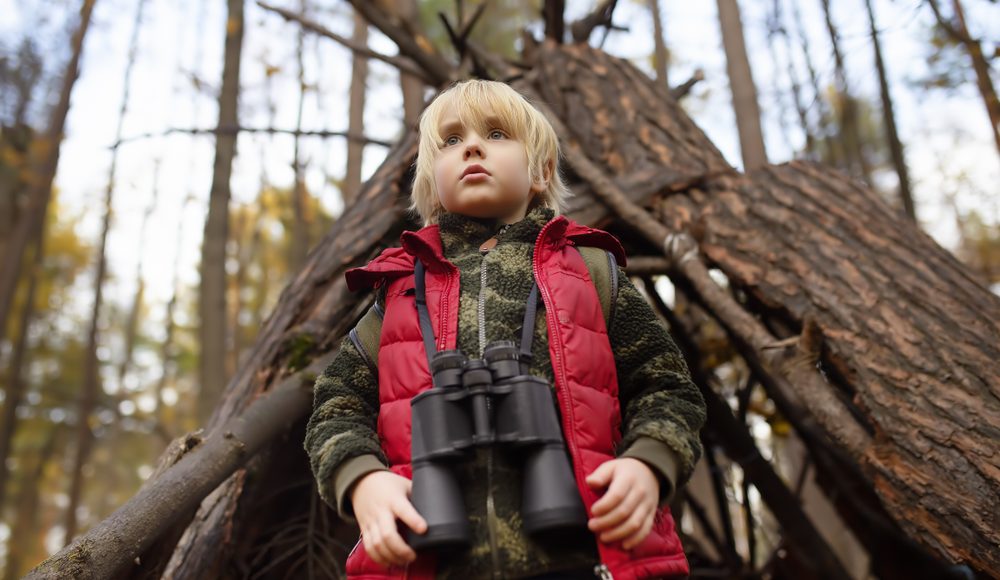

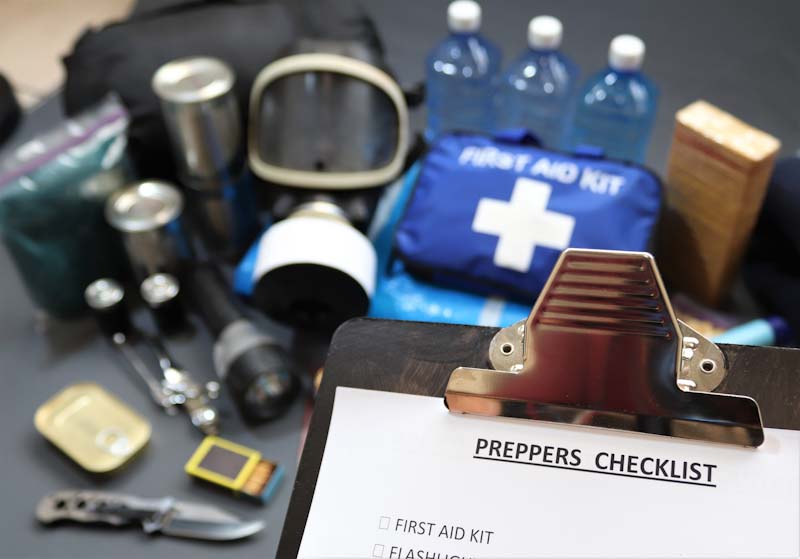
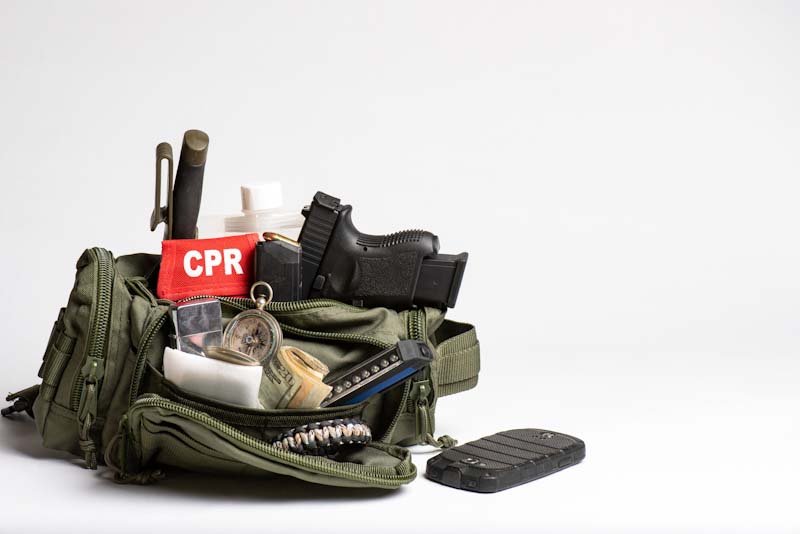
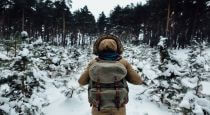
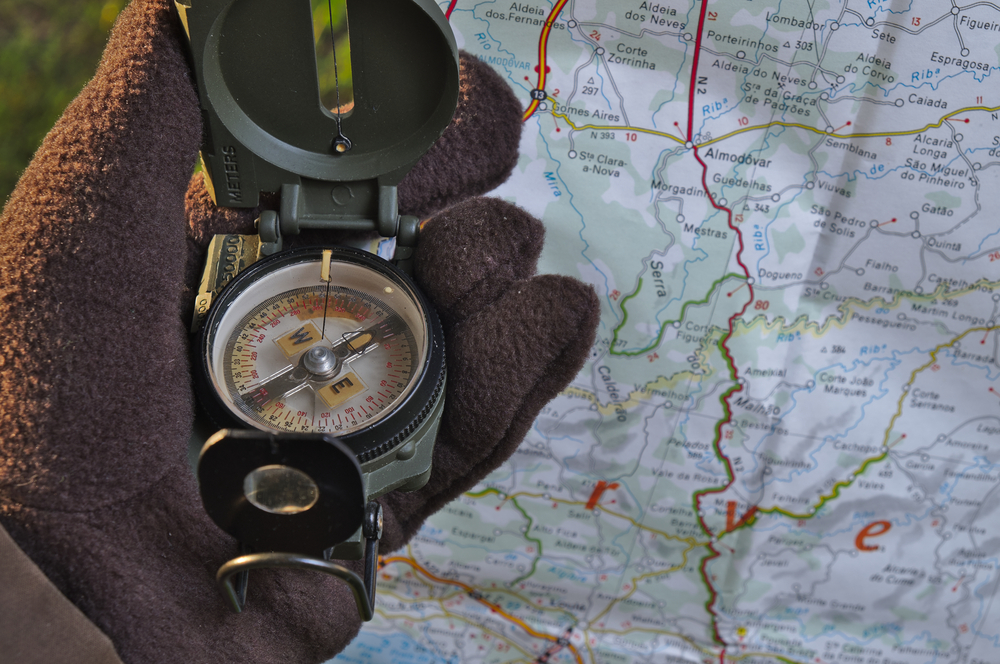

Illini Warrior | November 7, 2020
|
in regard to the use of a laminated card ID for children >>> better off with a set of “dog tags” that can neck carried on a lanyard or laced up in a child’s regular pair of shoes ….
you can internet order a set of tags or on your next trip to the pet store chain store >>> DIY personalize metal stamp a set on the coin-op machines that are commonly located in the check-out areas ….